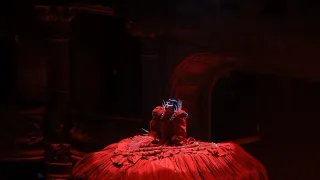October 3, 2017
Joni: The Anthology
Tony Pinizzotto READ TIME: 3 MIN.
"Big Yellow Taxi," "Both Sides Now," "River," and "Carey" - to know just a few of the most well-known songs of Joni Mitchell is to know her unique expression and sound, and therefore to know her. "Joni: The Anthology" celebrates the musical pioneer spirit that Mitchell exudes. This book calls itself "an essential collection of writings on Joni Mitchell that charts every major moment of the famed troubadour's extraordinary career ..." and leaves no stone unturned, especially with early essays when Mitchell was coming onto the scene. The book delves into her originality, her distinct sound, and her journey into a self-taught instrumental way of composing.
The book touches on Canadian born Mitchell's exposure to the music scene, her early childhood, and her days performing in folk clubs. It also celebrates her performances of other writers' songs, and other musicians performing her compositions, and takes a look at her relationships and the tragedy of losing a child at an early age. As her career progresses, she grows into a stellar performer, backed with a full group of musicians.
Not all the articles in "Joni" are complimentary. There are a few that are overly critical of Mitchell at a time when she was reaching out to a diverse field of collaborators, outside of the normal folk singer or Jazz artist. One scathing article takes issue with her collaborating with Charles Mingus, a jazz musician of color, and its writer accuses her of exploiting minority sound in the music industry.
As the crest of her career begins to roll downward, Mitchell breaks up with longtime companion Larry Klein, and her musical voice changes because of it. She announced her retirement a few times throughout her career, trying to step away while still in her 30s and then again, much later, in the 1990s. She put music aside and became an accomplished painter, retaining musical quality in a visual field. Even to this day, she referees her art vs. her music, and her reality vs. art.
Here's where the book falters: The sheer volume of articles in the book could be overwhelming to the reader. "Joni: The Anthology" is not poorly edited by Barney Hoskyns, but it still represents the conglomeration of other writer's impressions and interpretations of Mitchell which can vary, and be inconsistent with the book's mission to tell her life story. Moreover, its something of an oxymoron for a text-based medium, such as an anthology, to try to tell the story of her music, because 100% of Mitchell's impact is auditory. Also, let's not forget that many times in musician's careers a view of a story's subject can be skewed based on how that entertainment chooses to brand herself, or how her record label and/or press agent wants her to be seen. There are not many voices that sound like Mitchell's. Therefore her message has remained a unique one for over 50 years.
I grew up the youngest of five kids with older siblings that were young adults during Mitchell's emergence in the music scene. Therefore, I consider myself fortunate that I was exposed to Mitchell's music at an early age, and am quite familiar with her sound. But for the reader who isn't as familiar with Joni's works, "Joni: The Anthology" inspires the reader to seek out her sound. One may want to read "Joni" more like a poetry book, experiencing different emotional beats within its articles.
"JONI: the Anthology"
edited by Barney Hoskyns
Picador USA (Hardcover)
$26.00 USD
https://us.macmillan.com/books/9781250148629







